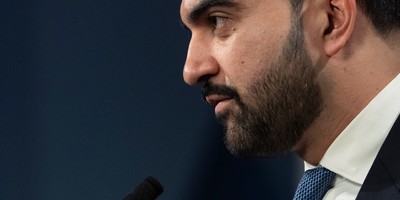In 1992, Arkansas Gov. Bill Clinton built his campaign for the White House on doing more for the "forgotten middle class." Calling it the "new covenant" (Democrats since Roosevelt have tried to work the words "new" or "deal" into their campaign slogans), Clinton promised to focus on the people he called "the backbone of the country, the ones who do the work and pay the taxes and send their children off to war."
Sound familiar? Here is Mitt Romney, the morning after the Florida primary: "I'm in this race because I care about Americans. I'm not concerned about the very poor. We have a safety net there. If it needs repair, I'll fix it. I'm not concerned about the very rich; they're doing just fine. I'm concerned about the very heart of ... America, the 90 percent, 95 percent of Americans who right now are struggling."
The usual firestorm erupted -- with liberals and conservatives alike pouncing on evidence of Romney's "tin ear." NPR anticipated (eagerly?) that Romney's words would show up in Democratic attack ads. And an exasperated Jonah Goldberg wondered in National Review Online whether Romney actually knows how to play this game: " . . . The concern is, after nearly a decade of running for president, if he can't get this stuff down now he never will."
It wasn't just the reference to not being "concerned" about the "very poor" that was misguided on Romney's part. It was the whole thrust of picking groups to favor or disfavor, help or ignore. When Bill Clinton promised to focus on the middle class (with, for example, a middle class tax cut that never materialized), he was well within a Democratic tradition of claiming to speak for this or that constituency. His departure from Democratic tradition was sly -- whereas previous Democrats had overdone their claims on behalf of the poor -- Clinton shoved the poor aside and focused on bringing goodies to the vast middle class, the people who vote.
Recommended
This contretemps is an unforced error. Romney has elsewhere declined to engage in this kind of pandering. In his victory speech in Florida, for example, he said, "The path I lay out is not one paved with ever increasing government checks and cradle-to-grave assurances that government will always be the solution. If this election is a bidding war for who can promise more benefits, then I'm not your president. You have that president today." In the second Florida debate, he chastised Gingrich for promising a new federal program at every campaign stop, reminding voters that that's how we got into this mess.
That's the spirit that will energize the Republican Party and independent voters.
Romney has sometimes hit the right notes, but he needs to more consistently convey a sense of urgency at the fiscal crisis the nation faces. It's fine to reference his private sector experience, but he should then quickly pivot to the national debt, the extraordinary growth of government and the unsustainability of the fiscal path we're on.
This week, the Congressional Budget Office released its Budget and Economic Outlook. It projects a fourth straight year of trillion dollar deficits -- the chief accomplishment of the Obama years. But then, because the CBO must make predictions based on current law, the projections take a turn into fantasyland. The very smart analysts at CBO, advanced degrees in economics notwithstanding, are thus forced to spin fairy tales. This year's goes like this: deficits will plummet as a share of GDP after 2013, dropping to under $200 billion between 2013 and 2022.
This cheerful outlook is bilge. It assumes that the Bush tax cuts (all of them, not just those for the rich) will be permitted to expire, that the cuts in Medicare reimbursement to doctors will not be reversed by Congress (which has never happened before), that the alternative minimum tax will not be indexed to inflation, and that the automatic spending cuts mandated in last fall's budget agreement will indeed happen.
Everyone knows this isn't so. In fact, the CBO, perhaps embarrassed by the numbers in the official forecast, issued an alternative prediction, based not on current law but on what is likely to happen, and that projection is beyond grim.
Just like the social democracies of Europe, the U.S. has made more promises to its citizens (mostly middle class citizens, by the way) than it can possibly pay for. This is the glaring emergency that demands leadership. This, not the middle class, is what Romney ought to be talking about.

























Join the conversation as a VIP Member